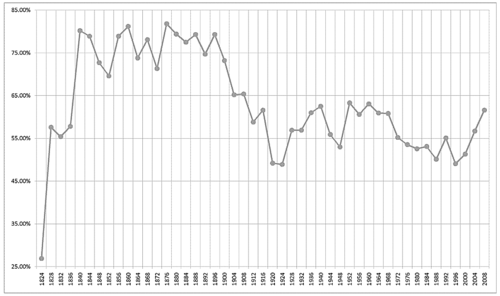News vs. Entertainment: How Increasing Media Choice Widens Gaps in Political Knowledge and Turnout
@jmartNYT: More on technology and self-selection of information > http://t.co/vZ4mQiyEzE WARNING: if read in one sitting, material can be...depressing
Markus Prior Princeton University
Despite dramatic increases in available political information through cable television and the Internet, political knowledge and turnout have not changed noticeably. To explain this seeming paradox, I argue that greater media choice makes it easier for people to find their preferred content. People who like news take advantage of abundant political information to become more knowledgeable and more likely to turn out. In contrast, people who prefer entertainment abandon the news and become less likely to learn about politics and go to the polls. To test this proposition, I develop a measure of people’s media content preference and include it in a representative opinion survey of 2,358 U.S. residents. Results show that content preference indeed becomes a better predictor of political knowledge and turnout as media choice increases. Cable TV and the Internet increase gaps in knowledge and turnout between people who prefer news and people who prefer entertainment.
http://www.princeton.edu/~mprior/Prior2005.News%20v%20Entertainment.AJPS.pdf

